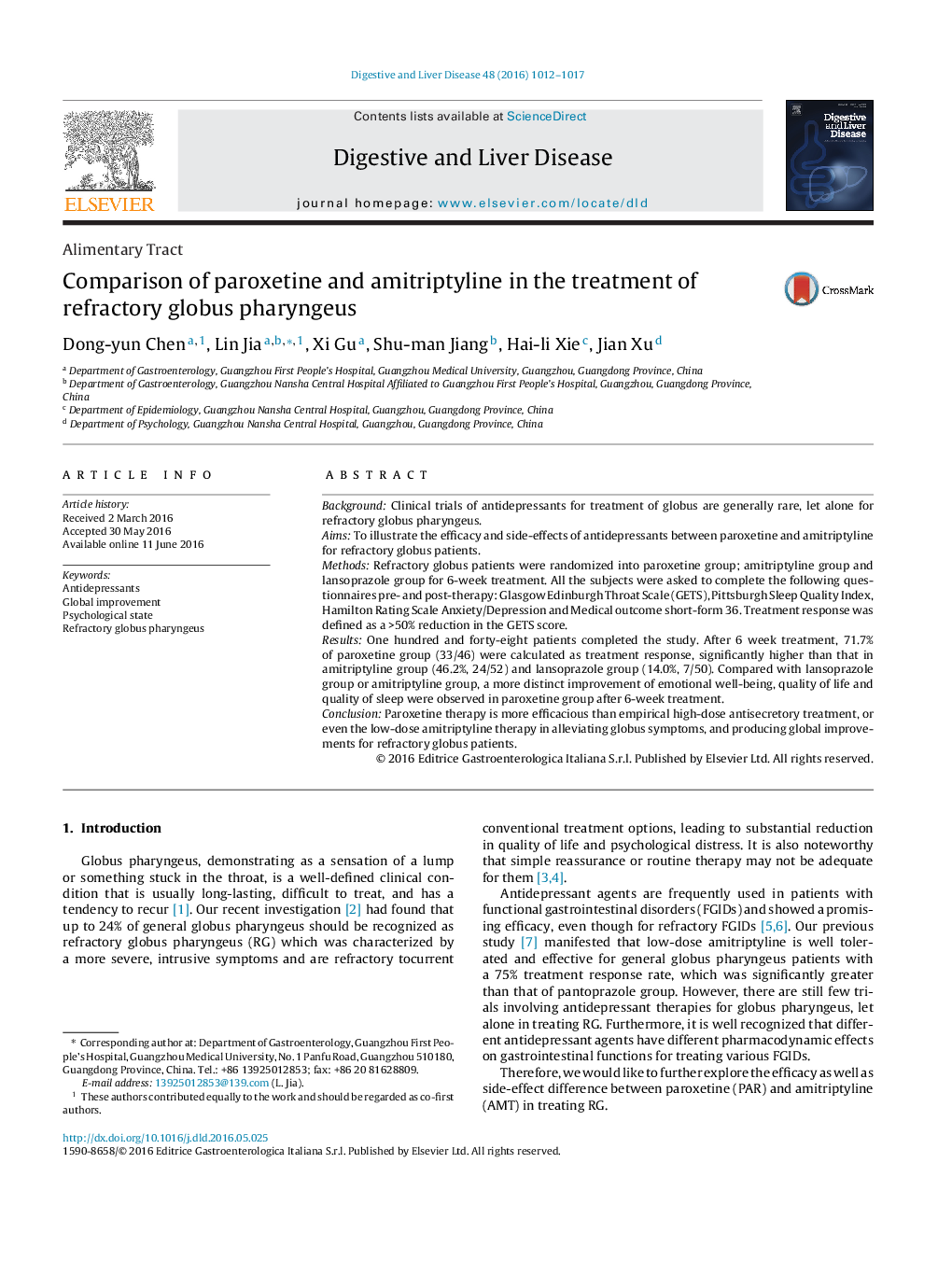| Article ID | Journal | Published Year | Pages | File Type |
|---|---|---|---|---|
| 3261181 | Digestive and Liver Disease | 2016 | 6 Pages |
BackgroundClinical trials of antidepressants for treatment of globus are generally rare, let alone for refractory globus pharyngeus.AimsTo illustrate the efficacy and side-effects of antidepressants between paroxetine and amitriptyline for refractory globus patients.MethodsRefractory globus patients were randomized into paroxetine group; amitriptyline group and lansoprazole group for 6-week treatment. All the subjects were asked to complete the following questionnaires pre- and post-therapy: Glasgow Edinburgh Throat Scale (GETS), Pittsburgh Sleep Quality Index, Hamilton Rating Scale Anxiety/Depression and Medical outcome short-form 36. Treatment response was defined as a >50% reduction in the GETS score.ResultsOne hundred and forty-eight patients completed the study. After 6 week treatment, 71.7% of paroxetine group (33/46) were calculated as treatment response, significantly higher than that in amitriptyline group (46.2%, 24/52) and lansoprazole group (14.0%, 7/50). Compared with lansoprazole group or amitriptyline group, a more distinct improvement of emotional well-being, quality of life and quality of sleep were observed in paroxetine group after 6-week treatment.ConclusionParoxetine therapy is more efficacious than empirical high-dose antisecretory treatment, or even the low-dose amitriptyline therapy in alleviating globus symptoms, and producing global improvements for refractory globus patients.
